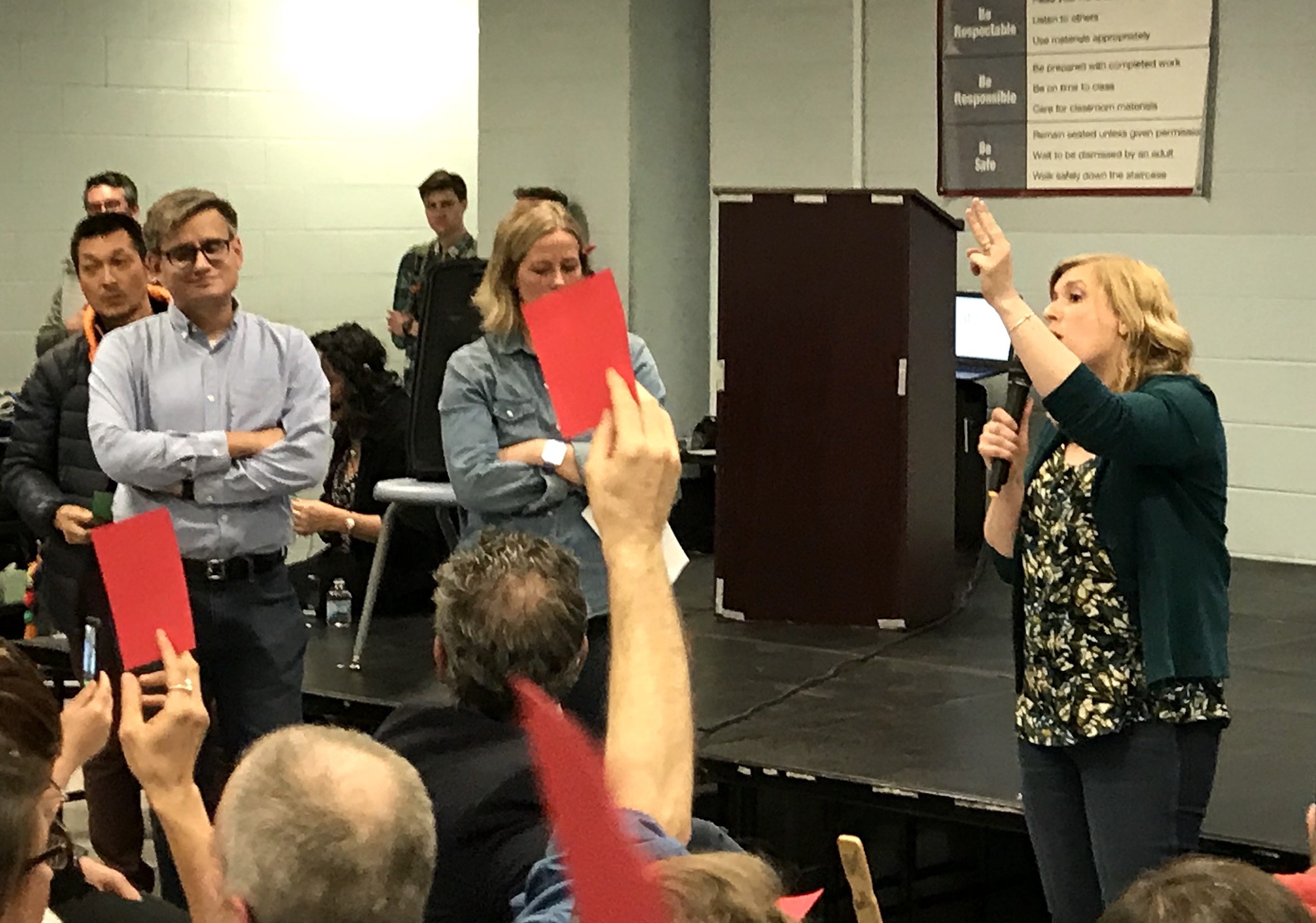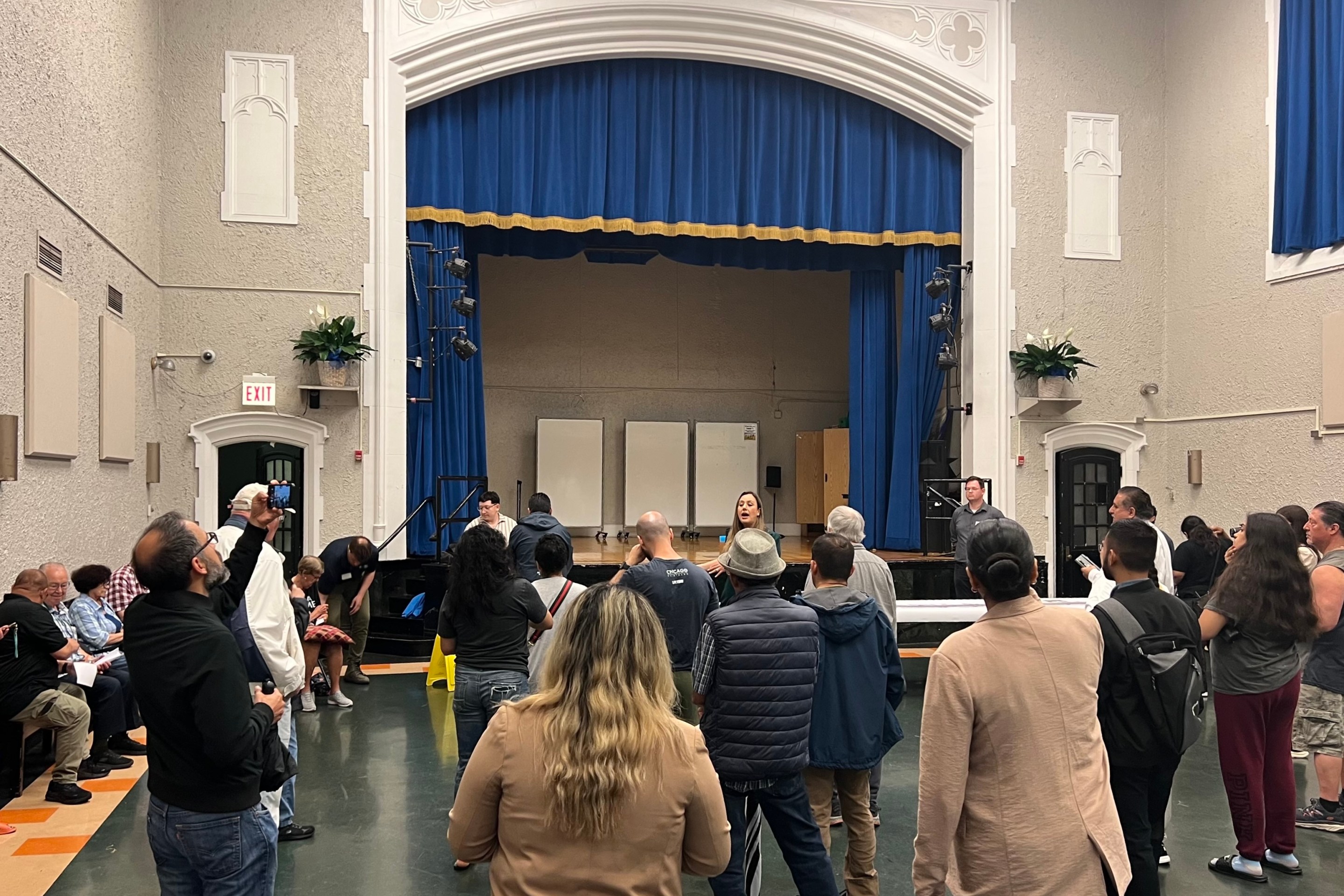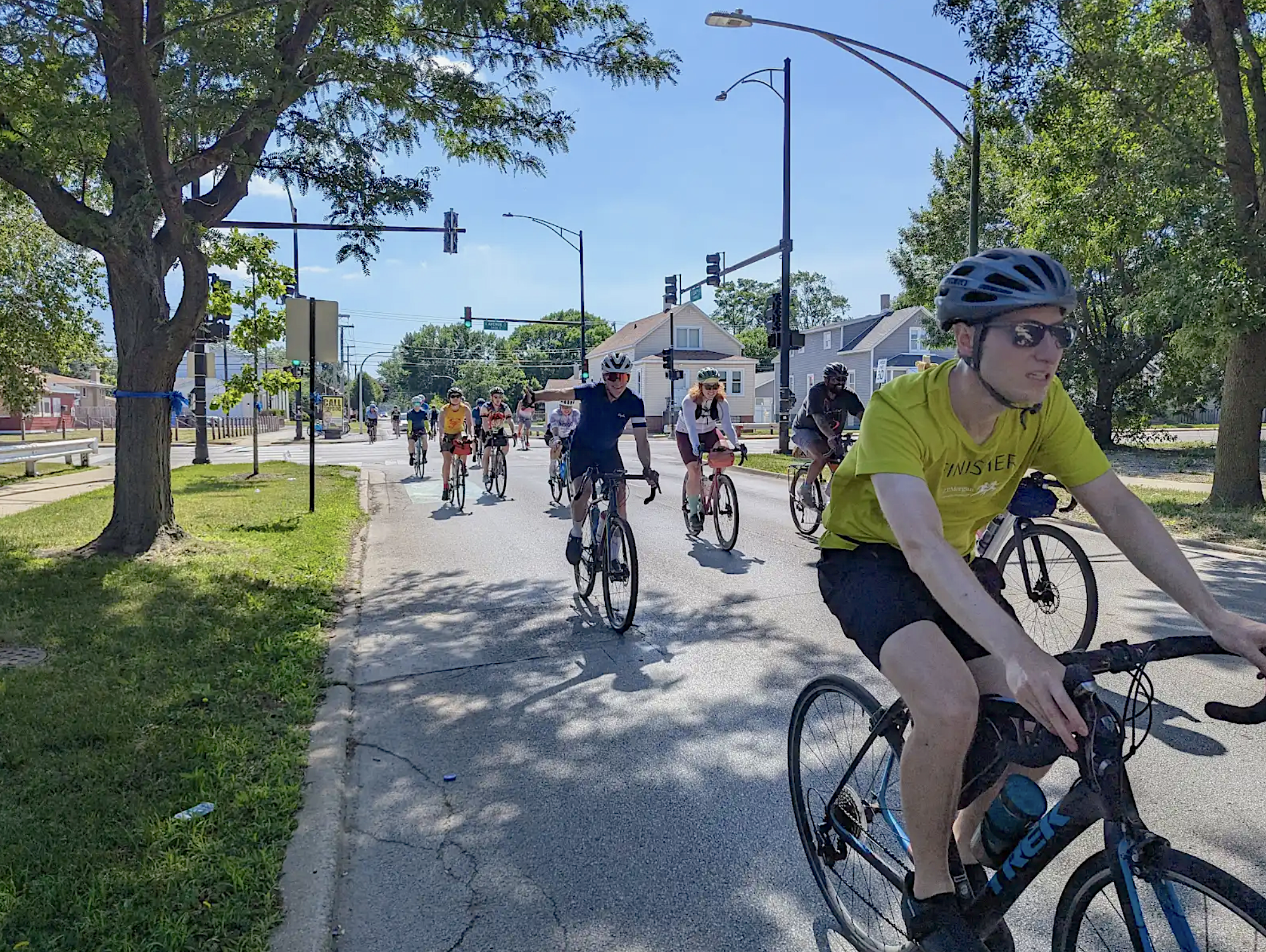If we compare Logan Square housing affordability to a sinking ship, the 100-percent affordable transit-oriented development planned next to the Logan Blue Line station would be a lifeboat. Since 2000, the swiftly gentrifying Northwest Side community has lost 20,000 Latino residents, largely due to rising property taxes and rents, while 12,000 non-Hispanic white people moved in. The 100-unit TOD, which recently cleared hurdles for city approval, is a strategy to help low-income and working-class residents stay in the neighborhood, while providing them with excellent transit access that will make it easier to get to job and education opportunities.
But a small group of affluent, mostly white, nearby property owners are trying to scuttle the affordable TOD plan. The Not In My Back Yard-style opposition group Logan Square Neighbors for Responsible Development, including landlords, real estate agents, architects, and a star anti-union libertarian lawyer, fiercely fought against the project during the community input process last year and failed to stop it. They've railed against the initiative at hearings for city approvals since then, with no success. Now they've gone nuclear with a nuisance lawsuit in a last-ditch attempt to spring a hole in the plan.
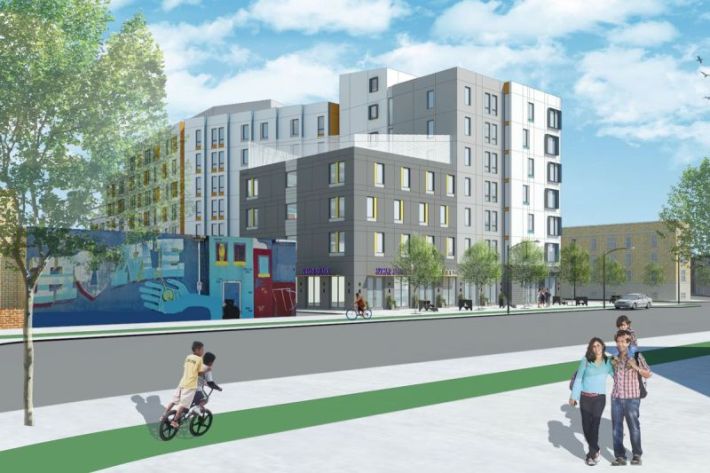
On February 21, the group filed the lawsuit against nonprofit developer Bickerdike Redevelopment Corporation, which hopes to start construction later this year, and city officials. The suit argues that the project to build on the city-owned parking on Emmett Street would cause significant harm to nearby businesses, although no local retail establishments are named as plaintiffs, and a Center for Neighborhood technology parking study found that the lot is usually only 30-percent full. LSNRD also claim that the building would be an irresponsible use of city funding, because there's no guarantee that the $22.5 million in multifamily housing bonds supporting the roughly $40 million project be paid back.
“For over a decade the Logan Square Environs has benefited from the investment and hard work of persons and entities such as Plaintiffs who have made the Environs a thriving residential, retail and restaurant corridor,” the 15-page lawsuit reads, as quoted by a Block Club Chicago report by Alex Nitkin. “By eliminating the only public parking in the area and replacing it with 100 apartments…the Project will choke off those residents, businesses, employees and visitors as people will no longer have a place to park and traffic will be a nightmare.”
Oh, please. What are the hundreds of curbside parking spots in the area, chopped liver?
The suit also argues that plan for the 7-story affordable TOD "allows density, height and bulk that is unprecedented and inappropriate for the neighborhood, which causes hardship on Plaintiffs and nearby residents, and the public as a whole.” That's a pretty specious argument, since there are several buildings of comparable or greater height in the area, such as the historic red-brick 7-story building on the west side of the Logan Square traffic circle; the massive, 5-story Logan's Crossing development; the 6-story Nocablu TOD; and and the 11- and 12-story MiCa Towers.
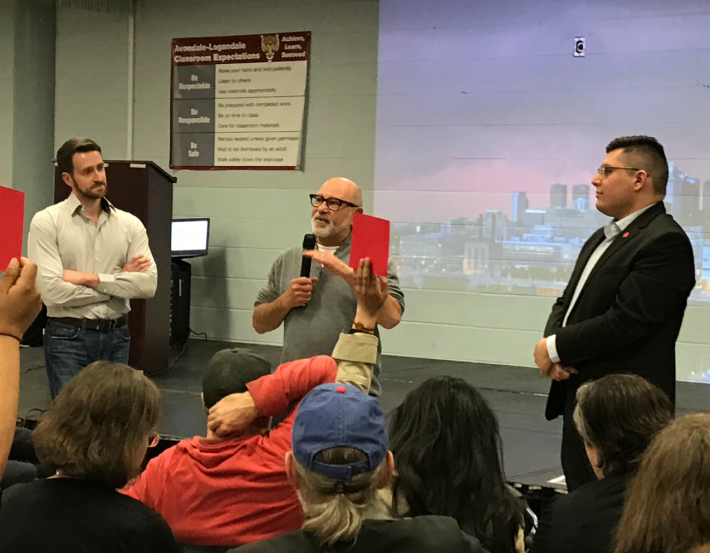
The plaintiffs include landlord Mark Fishman, who owns many properties in the area and is a longtime opponent of local alderman Carlos Ramirez-Rosa, the project's main champion. Fishman contributed more than $100,000 to Rosa's rival in the last aldermanic election, and is currently suing the alderman, claiming that he's owned back rent for Rosa's former ward office space.
"What’s particularly sad [about the lawsuit] is that some deep pockets back this suit," said Logan Square Preservation president Andrew Schneider on Twitter. He said several of the people named in the lawsuit ran against him for control of the organization or campaigned against him. "So they probably don’t care about the money they’re going to spend and when they lose the suit they will have succeeded only in holding up housing meant for the most vulnerable people in our city.
I don’t their suit has a chance. I believe what they’re trying to do is slow the project in hopes the delay with declines in the economy or anything (maybe the corona virus) will kill the project.
— Andrew Schneider (@ASchneider2008) March 1, 2020
Read the Block Club Chicago piece for quotes from city officials about how the affordable TOD project would help reduce housing segregation and create housing and economic opportunities for residents by prioritizing people over cars.
